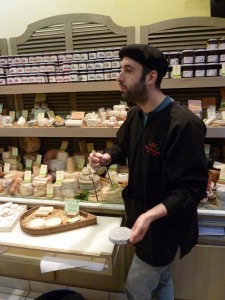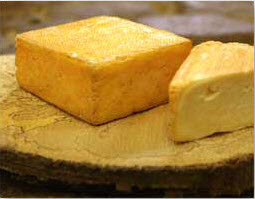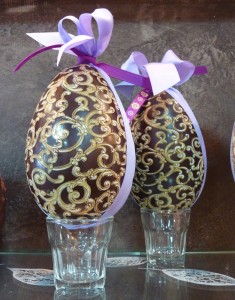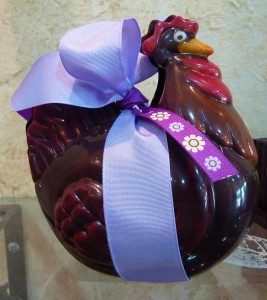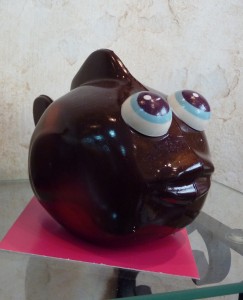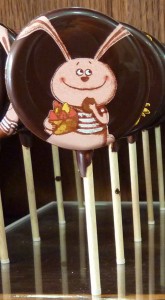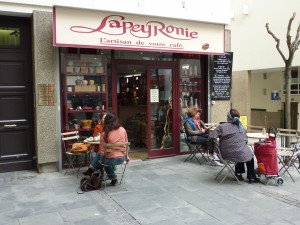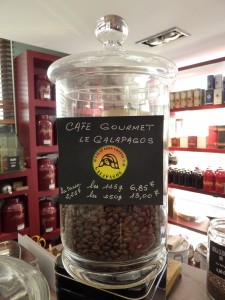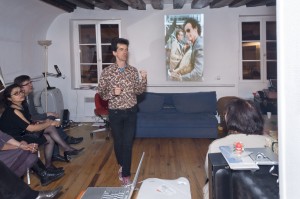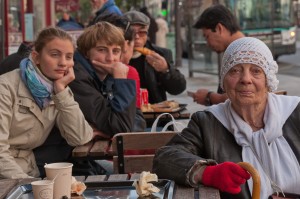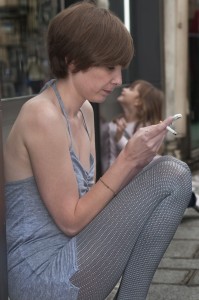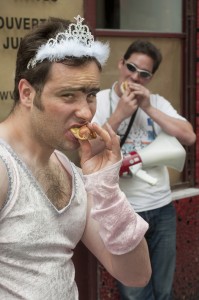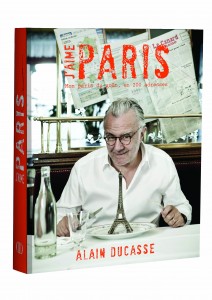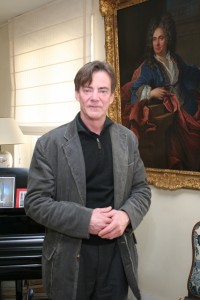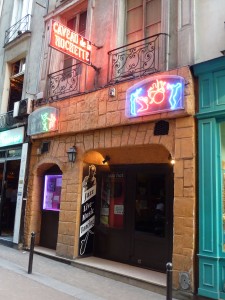
Caveau de la Huchette
(c) Discover Paris!
On Saturday, April 2, we had the opportunity to take a walking tour on the history of jazz in Paris. Entitled “Le Jazz Hot, an American art form in Paris,” it is presented by Context Paris, a company that organizes cultural walking tours of the city. We met Context’s docent, Jason Domnarski, and four other participants in front of Saint-Germain-des-Prés church. As well as working as a tour guide, Jason is a jazz pianist. His knowledge of and passion for jazz became increasingly obvious as the walk unfolded.
Jason loaned us iPods containing selected recordings of jazz music. We donned the ear buds, ready to listen to the selections that he had programmed. Then, we set off.
Our first stop featured two nearby cafés—Les Deux Magots and Café de Flore—which Jason described as once being an “epicenter for writers, intellectuals, and musicians.” It was at these cafés where the spirit of existentialism flourished and transformed into a life-style. Jazz thrived In this open-minded circle of eclectic people.
Farther along, Jason showed us the former location of Club Saint-Germain-des-Prés. Because performances were given in the cellars of the clubs, jazz fans became known as “troglodytes,” or cave dwellers. It was in this milieu that French singer Juliette Greco met American trumpeter Miles Davis. A short, passionate affair ensued.
Continuing our walk, Jason pointed out the hotel where jazz greats Kenny Clarke and Bud Powell held late-night jam sessions after their gigs. Kenny Clark lived in this neighborhood for the last fifteen years of his life. His bebop drum work changed the rhythm of jazz and allowed greater exploration of the music.
Along the route, Jason gave a history of the early development of jazz from its beginnings as funeral march music in New Orleans. He went on to talk about swing and big band jazz of the 20s and 30s, and the bebop era of the 40s and 50s.
We stopped near the site of the former Tabou club, where French writer, singer, song writer, musician, and jazz promoter Boris Vian performed in 1947. Vian was instrumental in introducing American jazz greats to the in-crowd in Paris. The club had a late-night license and stayed open until 4:00 a.m.
Stopping near pont Neuf, Jason talked about the jazz scene in Montmartre. That area, which once teemed with nightclubs, had seen the development of the French chanson in the pre-WWI period. When jazz arrived in 1919, there was a big clash between the traditionalists who admired the French chanson and those who preferred the new jazz music.
From pont Neuf we walked into the 5th arrondissement, where Jason pointed out the Caveau de la Huchette, the oldest jazz club in Paris. Bebop jazz pianist Bud Powell played in the now-defunct Chat Qui Pêche, a club that stood across the street from the Caveau. In the vicinity are two other historic clubs that still feature jazz. Trumpeter and jazz singer Chet Baker and blues singer Memphis Slim performed at one of these.
Crossing the river Seine, we made our way to the final point of the walk in the Châtelet district. Jason talked about several jazz clubs in this area, including the Duc des Lombards. At the entrance to the club, we spotted an announcement for Esperanza Spalding, an American bass player on her European tour.
We parted company with Jason, secure in the knowledge that jazz is alive and well in Paris!
Context Paris organizes group “Le Jazz Hot” walks on a regular basis and private walks on request.


